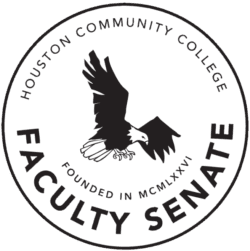Since 2015, when Chief Academic Officer Dr. Kimberly Beatty charged the Student Success and Educational Affairs committees of the Faculty Senate to work together to develop the institution’s definition of rigor, those members of the Senate have labored mightily to formulate a statement that would go to the heart of what is important in the education process. These committees met jointly, hosted several workshops with faculty instructional leaders, developed the definition, received the affirmation of the HCC Faculty Senate, presented the definition to the Deans’ Council, and presented the definition to the Vice Chancellor of Instructional Services/Chief Academic Officer, as well as the Chancellor’s Cabinet. The statement was summarily accepted by all groups.
Rigor:
A set of common standards specifying the expectation, instruction, and learning experiences that intellectually, academically, and personally challenge students to develop deep conceptual understandings of complex knowledge and skills; such standards will be recognized as acceptable to outside accreditors, academic institutions, and/or current industry standards.
Why is this important? Because when we are asked to defend what we do in the classroom, we have this definition as our cornerstone. Credits and credentials without rigor are worse than meaningless: they represent lost hours and wages that students have spent for something without value. For indeed, without rigor our courses have no value.

